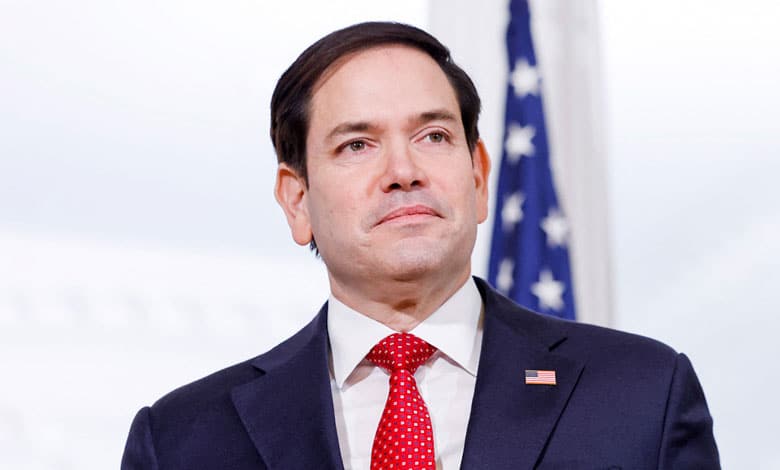Marco Rubio Begins Mideast Tour in Israel Amid Controversial Gaza Proposal
Secretary of State Marco Rubio has begun his Middle East tour with a visit to Israel on Sunday, where he is set to navigate the region's tense political landscape. His visit comes in the wake of President Donald Trump's controversial proposal to transfer the Palestinian population from Gaza to other countries and redevelop the area under U.S. control.

Secretary of State Marco Rubio has begun his Middle East tour with a visit to Israel on Sunday, where he is set to navigate the region’s tense political landscape. His visit comes in the wake of President Donald Trump’s controversial proposal to transfer the Palestinian population from Gaza to other countries and redevelop the area under U.S. control.
Table of Contents
Rubio’s Visit and Impact on Regional Dynamics
Rubio’s first visit to the region as America’s top diplomat is expected to garner a warm reception from Israeli Prime Minister Benjamin Netanyahu, who has praised the Gaza transfer proposal. However, Arab leaders across the Middle East have strongly rejected the plan, with many scrambling to formulate a counterproposal that would preserve Palestinian rights while addressing Israel’s security concerns.
The ceasefire between Israel and Hamas remains fragile, with both sides facing a fast-approaching deadline in early March to negotiate the next phase of the conflict. Failure to reach an agreement could result in the resumption of hostilities, even as Netanyahu signals readiness to resume military actions, despite the presence of hostages.
Rubio Suggests Arab States Take Action on Gaza
In a radio interview, Rubio framed Trump’s Gaza proposal as a way to pressure Arab nations to create a postwar solution that Israel would accept. He emphasized that Hamas must not play a role in Gaza’s future governance. Rubio also raised the possibility of Arab countries sending troops to combat Hamas, which has withstood Israel’s 15-month military campaign and maintains control over Gaza.
Also Read: EAM Jaishankar Meets Israel FM Gideon Saar at Munich Security Conference 2025
“If someone has a better plan, and we hope they do… if the Arab countries have a better plan, then that’s great,” Rubio stated. However, he stressed that Arab countries would need to confront Hamas, suggesting that Israel could be forced to act if regional powers fail to take responsibility.

Arab Leaders Face Limited Options
For Arab leaders, Trump’s proposal to transfer Palestinians out of Gaza or fight Hamas on Israel’s behalf presents a dilemma. Both scenarios would spark significant domestic backlash and could destabilize the already fragile region. Egypt, which has been working with other countries on a counterproposal, is hosting an Arab summit on February 27 to discuss Gaza’s future.
While Egypt opposes any mass displacement of Palestinians, it has warned that such a move would undermine its peace treaty with Israel. Arab nations have conditioned their support for a postwar Gaza on the establishment of a Palestinian state with full sovereignty over Gaza, the West Bank, and East Jerusalem, areas captured by Israel in the 1967 Six-Day War.
Rubio’s Upcoming Regional Meetings
During his tour, Rubio is expected to meet with Israeli Prime Minister Netanyahu before traveling to the United Arab Emirates and Saudi Arabia—key regional players that have rejected the displacement of Palestinians. The UAE was instrumental in the 2020 Abraham Accords, which normalized relations between Israel and four Arab states during Trump’s presidency. While Saudi Arabia has shown interest in expanding the accords, it has insisted that any normalization with Israel must include a viable Palestinian state.
Rubio’s visit will notably exclude Egypt and Jordan, which are key U.S. allies that have peace agreements with Israel but are staunchly opposed to the mass resettlement of Palestinians. Qatar, a key mediator in the Gaza conflict, is also absent from Rubio’s itinerary.
A Divided Middle East
The ongoing debate over Gaza and the Palestinian issue underscores the deep divisions within the Middle East. With Arab nations searching for a viable solution and Israel focusing on its security concerns, the region faces a complex and uncertain future.
As Rubio continues his diplomatic mission, the geopolitical landscape remains in flux, with crucial decisions ahead on how to address the ongoing conflict and potential paths forward for Gaza.
